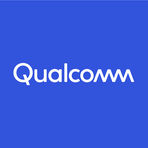Meta's Horizon OS: A New Era in Mixed Reality
April 25, 2024, 3:35 am
Meta's latest announcement of the Horizon OS marks a significant shift in the mixed reality landscape. The company is opening up its operating system to other tech giants like Asus, Lenovo, and Microsoft, signaling a new era of collaboration and innovation in the metaverse.
The Horizon OS, previously known as the Quest software, is set to power a range of purpose-specific devices, catering to different needs and preferences. From high-end OLED displays for immersive TV and movie experiences to lightweight headsets for productivity and exercise, Meta is expanding its offerings to appeal to a wider audience.
Partnering with Asus, Lenovo, and Xbox, Meta is set to launch a variety of headsets that cater to different use cases. Asus will focus on gaming with its Republic of Gamers brand, Lenovo will target productivity, learning, and entertainment, while Xbox will bring its gaming expertise to the table with a special edition Meta Quest bundled with Xbox Cloud Gaming and Game Pass.
The move to open up the Horizon OS to third-party hardware makers is a strategic one, aimed at creating a more diverse and inclusive ecosystem. By allowing developers to access advanced technologies like eye, face, hand, and body tracking, Meta is empowering creators to build innovative mixed reality experiences.
In a market where competition is fierce, particularly with Apple's Vision Pro making waves, Meta's Horizon OS is a bold step towards reclaiming its position as a leader in the mixed reality space. By fostering partnerships, enhancing developer engagement, and leveraging advanced technologies like Qualcomm's Snapdragon processors, Meta is poised to drive innovation and shape the future of mixed reality.
As the tech world eagerly awaits the release of these new devices, one thing is clear - Meta's Horizon OS is not just a software update, but a strategic move towards a more open, collaborative, and immersive metaverse. With the promise of shared virtual spaces, diverse hardware options, and a developer-friendly platform, Meta is laying the foundation for a new era in mixed reality.
The Horizon OS, previously known as the Quest software, is set to power a range of purpose-specific devices, catering to different needs and preferences. From high-end OLED displays for immersive TV and movie experiences to lightweight headsets for productivity and exercise, Meta is expanding its offerings to appeal to a wider audience.
Partnering with Asus, Lenovo, and Xbox, Meta is set to launch a variety of headsets that cater to different use cases. Asus will focus on gaming with its Republic of Gamers brand, Lenovo will target productivity, learning, and entertainment, while Xbox will bring its gaming expertise to the table with a special edition Meta Quest bundled with Xbox Cloud Gaming and Game Pass.
The move to open up the Horizon OS to third-party hardware makers is a strategic one, aimed at creating a more diverse and inclusive ecosystem. By allowing developers to access advanced technologies like eye, face, hand, and body tracking, Meta is empowering creators to build innovative mixed reality experiences.
In a market where competition is fierce, particularly with Apple's Vision Pro making waves, Meta's Horizon OS is a bold step towards reclaiming its position as a leader in the mixed reality space. By fostering partnerships, enhancing developer engagement, and leveraging advanced technologies like Qualcomm's Snapdragon processors, Meta is poised to drive innovation and shape the future of mixed reality.
As the tech world eagerly awaits the release of these new devices, one thing is clear - Meta's Horizon OS is not just a software update, but a strategic move towards a more open, collaborative, and immersive metaverse. With the promise of shared virtual spaces, diverse hardware options, and a developer-friendly platform, Meta is laying the foundation for a new era in mixed reality.



